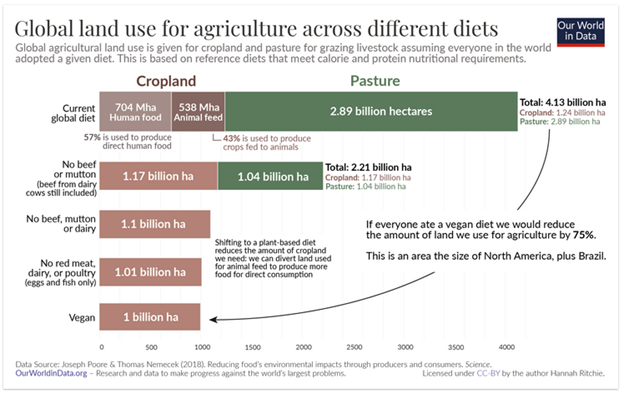this post was submitted on 01 Sep 2024
50 points (84.7% liked)
Data is Beautiful
852 readers
1 users here now
Be respectful
founded 4 months ago
MODERATORS
you are viewing a single comment's thread
view the rest of the comments
view the rest of the comments

Sure, but you could also grow food corn, so it's not really a flaw in this graph.
I don't think you could grow sweet corn at the same volume/efficiency. if you could, why wouldn't you? it's more valuable per pound
Now, I'm not actually a farmer, but I suspect you're right. You can sell field corn, probably for a similar amount per hectare as food corn, because people will turn around and pay a much higher amount for animal products derived therefrom.
In the scenario presented here that's basically wished away. The amount of ethanol we use compared to feed has got to be small, so I'm guessing that's how it all works.
If we all switched to biogas that wouldn't be true, but electric has won the green power race decisively.
Gasoline is 10% ethanol. E88 is 15% ethanol. The EIA estimates that we use 376 million gallons of gasoline per day in the USA. That's 37 million gallons of ethanol, minimum, per day.
I'm going to paste from a comment I made the other day:
Hmm. I forgot about the admixture into fossil fuels, good point. It makes me wonder if there really is no good alternate use for the byproducts, other than animal feed. Biodiesel is one possibility, although I'd have to research the economics of it at this point in technological development.
The top reply there is "it's mixed", which is fair. Some places you have farmers growing alfalfa on good food land, which I personally see. Other places you have livestock grazing on semidesert - there really is no obvious alternate use there, until we run short on actual desert to build solar in.